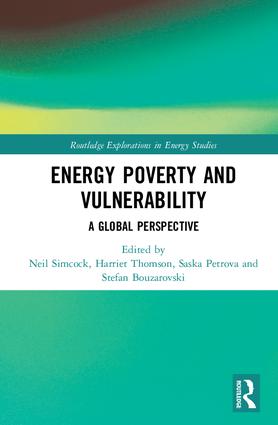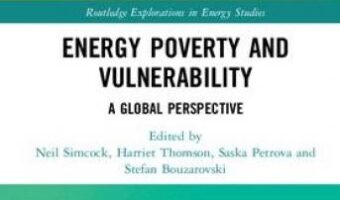The book entitled “Energy Poverty and Vulnerability – A Global Perspective” introduces a set of in-depth analyses of the drivers and consequences of energy poverty. Edited by Neil Simcock, Harriet Thomson, Saska Petrova, and Stefan Bouzarovski from the University of Manchester, UK, the book presents the latest research on energy poverty, combining different geographical and methodological perspectives. The chapters address the issue of energy poverty in such different regions like Western Balkans, England, Poland, Kenya or South Africa. The multi-faceted nature of energy poverty is analysed from different points of view, from the effect the policies may have on it, to interrogating the spatial distribution of its measures, to the effect of including young people in energy poverty research.
In their chapter, M. Lis, A. Miazga, and K. Sałach explore the regional distribution of energy poverty in Poland and analyse its drivers. They find that rural areas are more susceptible to issues with energy affordability, as defined by the ‘Low Income High Costs’ (LIHC) indicator, whilst urban areas’ inhabitants more frequently face lack of adequate thermal comfort indoors, as defined by subjective perceptions of households. Lis, Miazga and Sałach argue that spatial variations in energy efficiency of building stock, prices of energy carriers, household incomes, and average outdoor temperatures explain these regional inequalities.

